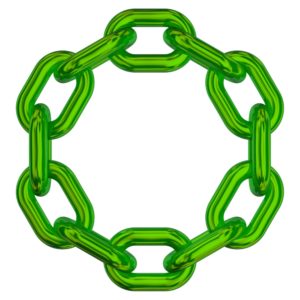8 Major Keys to Ensure Search Engine Success
No doubt you’ve noticed the talk all over the Internet. Everyone’s writing about SEO content here and Google optimization there. People can’t get enough of the SEO game. There’s a reason for that. If you play by the rules search engines set forth, you’ll end up getting more traffic than you’d ever imagine. And you won’t have to pay a penny for it!
Anyone who runs a website understands how important traffic is to ensuring success. Without traffic you have no customers. Without customers your website, and all the information you’ve taken time to curate, is virtually worthless. Organic traffic makes the world go round when you operate online. With this in mind, you need to understand how to find the search engine success you deserve.
Voted Most Likely To Search
 To begin your quest for search optimization, first you should meet the elite:
To begin your quest for search optimization, first you should meet the elite:
- Bing
- Yahoo
- Yandex
- DuckDuckGo
- Ask
By no means is this a comprehensive list of search engines; it’s more of a snapshot highlighting the most popular. Many consider Amazon and YouTube to be search engines, too. While they only search internally, both have more searches than every other engine except Google!
How Can Content Boost Your Ranking? Let Us Count The Ways
If you’re ready to find the search engine success your website deserves, then keep reading. Here are eight of the major keys to successfully make your rise a meteoric one:
Look At What They’re Looking Up
 You won’t find any search engine success without doing proper keyword research. Without research, you won’t know what to write about to maximize your organic traffic. We cannot stress this point enough: invest in identifying the right keywords before you do anything else. Otherwise, you’re just wasting resources.
You won’t find any search engine success without doing proper keyword research. Without research, you won’t know what to write about to maximize your organic traffic. We cannot stress this point enough: invest in identifying the right keywords before you do anything else. Otherwise, you’re just wasting resources.
To start your keyword researching, think about your business. What do you sell? What services do you provide. What type of topics are related to your industry or niche? Start brainstorming.
Once you have a nice long list of topics, ideas, and terms – start typing them into Google and see what presents on the first page. If they’re all coming from huge sites like Amazon, Wal-Mart and the like, then you may not be off to a stellar start. If, on the other hand, all the results come from small companies, blogs, and even Internet forums, then you may have a hit on your hands.
Go through your list and see which terms seem the best based on the search results that showed up in Google. Make sure you note how these top results are worded. If, for example, you typed “I want to train my dog properly” and all the results came back “How to Train Your Dog,” you now know the latter phrasing, with the most search engine hits, is the one to emulate.
 Once you have a solid list, you can head to three places to check the effectiveness of your search engine keywords:
Once you have a solid list, you can head to three places to check the effectiveness of your search engine keywords:
- Google Analytics
- SEM Rush
- Keyword Eye
While all three of these keyword research tools will get the job done, the one you choose will be based on your budget and type of operation. SEM Rush is one of the best keyword research tools available, but you’ll pay a high monthly premium to use the site. Keyword Eye is free, but you’ll only get ten searches per day. Plus, the information won’t be as detailed as the other options. If you have a Google AdSense account, then you’ll want to start by researching with Google Analytics.
No matter the research tool you choose, just plug in the keyword you found from brainstorming and using Google. Compile the keywords that get the most searches but feature as little competition as possible. Ideally you’d have 10-50 significant keywords depending on your industry/niche and the size of your online operations.
A Great Title is Vital
 Now you have unearthed some competitive keywords, but those gems don’t ensure search engine success just yet. You’ll need to refine that keyword into an exciting headline that dazzles readers.
Now you have unearthed some competitive keywords, but those gems don’t ensure search engine success just yet. You’ll need to refine that keyword into an exciting headline that dazzles readers.
Quite frankly, a search engine doesn’t just scan your page or article to see if you hit the keywords at the proper rate. No! Google actually puts real eyes on your results and compares your piece against others. Then they compare how often your document gets clicked compared to others competing for the same spot atop the search engines.
Remember the saying “don’t judge a book by its cover” from back in the day? It’s baloney. We all make snap judgments and one way Internet users quickly judge your piece is by the title. You must draw them in with an enticing title. It doesn’t matter the keyword you’re competing for!
 So, how do you write a compelling headline? Luckily, that’s relatively easy once you have identified a great keyword. Take the keyword you want to hit with any page or article you’re creating and find a way to work it into:
So, how do you write a compelling headline? Luckily, that’s relatively easy once you have identified a great keyword. Take the keyword you want to hit with any page or article you’re creating and find a way to work it into:
- A “How To” article
- A numbered list-type of article
- An article that answers a question or solves a problem
That’s it! If you can fit the majority of keywords into these kinds of pieces, you’ll have more traffic than a toll road at rush hour. I promise!
Google Rewards Great Writing
 So you have a killer keyword and a catchy headline that will grab a reader’s attention. Now you need that one special ingredient: excellent writing!
So you have a killer keyword and a catchy headline that will grab a reader’s attention. Now you need that one special ingredient: excellent writing!
Remember we told you Google keeps track of how many people click on your headline compared to other posts competing for similar keywords? Your content writing is also compared with others. Search engines track how long visitors stay on your page and use this number as a metric to determine the quality of your writing. If you end up high in search engine rankings, you may have a real set of discerning human eyes comparing your writing to others and liking what they see.
 To make sure your writing ranks with the best of them, remember these rules:
To make sure your writing ranks with the best of them, remember these rules:
- Eliminate all spelling and grammar errors. Hint: Use an editing app like Grammarly.
- Use engaging subheads and fonts to visually lighten long blocks of text.
- Break lengthy paragraphs up into smaller ones or bullet points.
- Write with emotional appeal. You may be explaining a plain-jane procedure, but give your procedure some lipstick and rouge, so the audience will like what they see.
Learning how to improve your content writing is a whole post by itself, but the list above should ensure your copy is search engine ready from word one.
Length Matters
 Gone are the days of writing 400-500 word hit pieces with your primary keyword stuffed 10-15 times in the body text. Google will reject that every single time.
Gone are the days of writing 400-500 word hit pieces with your primary keyword stuffed 10-15 times in the body text. Google will reject that every single time.
The best way to know how long any article your writing needs to be is through a Google search. Type your main keyword into the search engine and look at all the results on the first page. Find a word count on each piece. You’ll want to write something at least as long as that of your nearest rivals.
Generally speaking, we found word count to be industry specific. Competitive industries require a minimum of 1,200 words on a topic. Many times you’ll need 2,000 great words to break through the first page barrier. In other niches, a solid 500-word post will get you the first spot in Google.
Stuffing is for The Birds
 We briefly talked about this above, but it bears repeating: stuffing your content with keywords is a thing of the past. You’ll just look foolish! Your main keyword should only show up one time every 100-200 words, especially when working with longtail keywords.
We briefly talked about this above, but it bears repeating: stuffing your content with keywords is a thing of the past. You’ll just look foolish! Your main keyword should only show up one time every 100-200 words, especially when working with longtail keywords.
Through A LOT of trial and error, we’ve found the keyword stuffing sweet spot to be 5-8 times every 1,000 words. Google will notice your content at this rate, but will never assume you’re stuffing any keywords. This is the exact position you want your content to be in.
Fresh and Frequent
 If you’re writing evergreen content, then staying fresh isn’t as important. Some bloggers we know will write one or two solid pieces a month and their traffic continues to improve. However, these blogs have been around for years, have authority in their niche and have pumped content in the past.
If you’re writing evergreen content, then staying fresh isn’t as important. Some bloggers we know will write one or two solid pieces a month and their traffic continues to improve. However, these blogs have been around for years, have authority in their niche and have pumped content in the past.
 For newer websites and blogs or sites with little content, you’ll need to make a conscious effort to replenish. This means you’ll want to put out at least 1-2 pieces per week until you start seeing the growth you desire. Search engines love new content. One of the easiest ways to improve the search engine optimization of your site is to continually produce content.
For newer websites and blogs or sites with little content, you’ll need to make a conscious effort to replenish. This means you’ll want to put out at least 1-2 pieces per week until you start seeing the growth you desire. Search engines love new content. One of the easiest ways to improve the search engine optimization of your site is to continually produce content.
Interaction Gains Traction
 The interesting thing about new content is that you don’t even have to write it. Search engines allow comments and social shares to be considered updates to your website. If the crawler sees new comments or more social shares on your site, then it considers the content to be changed. This activity immediately improves your search engine optimization.
The interesting thing about new content is that you don’t even have to write it. Search engines allow comments and social shares to be considered updates to your website. If the crawler sees new comments or more social shares on your site, then it considers the content to be changed. This activity immediately improves your search engine optimization.
How do you take advantage of this fact? Encourage everyone who views your page or article to share it on social media. Also keep comments open on all articles to keep the dialog going with your audience. Remember, managing these comments means timely responses from you.
Off-Page and Backlinks Boost Search Too
 Last, but not least, you need to do a little off-page search engine optimization to bolster your success. We’re not talking about blog networks and shady SEO tactics. We’re talking about organic, off-page SEO.
Last, but not least, you need to do a little off-page search engine optimization to bolster your success. We’re not talking about blog networks and shady SEO tactics. We’re talking about organic, off-page SEO.
The main factors that contribute to your off-page search engines’ success include authority, engagement, links and the quality of those links. If you have a site that has been around for awhile and is popular, then there’s a good shot you’ll have authority in your industry or niche. Engagement refers to comments, social shares and more. Basically, are the people who view your content also interacting with it?
Then you have backlinks. Organic backlinks are HUGE! If you have successful sites organically linking to your pages and articles, then your SEO will boost through the roof. One of the easiest ways to get backlinks is to guest post on popular sites in your industry and niche.
Let These Simple 8 Make Your Position Great
Learning how to properly handle search engine optimization for your site can be like making your way through a maze. We know that because we learned how to get in Google’s good graces with our own company. At iwebcontent, we have professional search engine optimization content specialists on staff. Give us a call so we can devise a plan to help you achieve search engine success.





